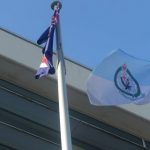WA Police Criticised for Using Excessive Force Against Indigenous Australians

On September 27, a 35-year-old Aboriginal woman called WA police to report a family violence incident at her Joondalup house. On arriving at the residence, the attending officers ran a background check on the mother-of-five and arrested her for fine default.
The Noongar woman’s unpaid fines amounted to $3,900, most of which was due to a dispute over an unregistered dog in 2012. She was sent to Melaleuca Remand and Reintegration facility – a maximum security prison for women – where she was set to be incarcerated for 14 days.
In Western Australia, outstanding fines are paid off at rate of $250 per day spent behind bars. Under state laws, a fine defaulter also allow has the option of paying off their fines by way of community service if they are eligible to do so.
The sheriff’s office deemed the woman unsuitable for community service, as she was caring for her five children, along with six of her sister’s young children.
A 69-year-old pensioner from Melbourne came to the woman’s aid. Peter Clark read about the incident in the paper, and became so “incensed” that he tracked her down and paid the fine.
A discriminatory law
This incident echoes the circumstances surrounding the tragic death of Ms Dhu at South Hedland police lockup. On August 2 2014, Ms Dhu called police to report a domestic violence incident. Responding officers ran a background check and arrested her for unpaid fines totalling $3,622.
The 22-year-old Yamatji woman died three days later of septicaemia. A coronial inquiry found she suffered deplorable and inhuman treatment at the hands of WA police officers whilst in custody. And medical staff didn’t diagnose the cause of her illness, as they assumed she was faking it.
Western Australia is the only jurisdiction in the country where fine default can directly led to imprisonment. A 2016 report found that this practice disproportionately affects Aboriginal women. First Nations women comprise 64 percent of all WA’s female fine defaulters.
The coronial inquest into Ms Dhu’s death in custody recommended the WA government abolish the imprisoning of people for unpaid fines.
Mervyn Eades, founder of the Ngalla Maya post-release support program, can’t believe that WA authorities are continuing to lock people up for fine default. “After the Ms Dhu incident, we were told by the WA government that they’d be looking at not imprisoning our people for fines,” he said.
The Noongar elder added that overall “the state of Indigenous incarceration in Western Australia is grossly disgraceful.”
WA police have been widely criticised for over-policing Indigenous communities and subjecting residents to illegal searches and arbitrary warrant checks, resulting in disproportionate numbers being arrested and imprisoned for trivial offences such as fine default.
Aggressive policing can also create animosity in Indigenous communities, leading to confrontation and ultimately arrests for the ‘trifecta of offences’ – offensive language, resist police and assault police.
Mass incarceration in WA
Indigenous incarceration rates in Australia are ever-increasing. Nationally, Aboriginal and Torres Strait Islander people account for 28 percent of the adult prisoner population, while they only represent 2.8 percent of the country’s overall population.
This accounts for 2,456 inmates per 100,000 Aboriginal and Torres Strait Islander adults.
But in WA, the situation is even graver. The Indigenous incarceration rate stands at 4,108 prisoners per 100,000 First Nations adults.
In June this year, there were 2,724 Indigenous adults in Western Australian correctional facilities. This accounted for 32 percent of the prisoner population, while Aboriginal people account for less than three percent of the WA population.
Mr Eades points out that it’s even worse when it comes to Aboriginal youth in WA. “Eighty four percent is our children’s incarceration rate, which is the highest Indigenous incarceration rate in the world,” he told Sydney Criminal Lawyers®.
“Not only in Australia,” Eades stressed. “It’s the highest incarceration rate of any Indigenous child in the world.”
A racist force
On September 27, it was reported in the Western Australian that a 15-year-old girl will be appearing in court this month on animal cruelty charges after allegedly assaulting a police dog, along with an officer.
The Aboriginal girl allegedly assaulted an officer causing minor injuries whilst fleeing pursuit on September 22. Officers then deployed their police dog on the girl. The dog bit the girl on the upper thigh, as she attempted to jump over a fence. The girl then allegedly bit the dog on the head.
As pointed out by Indigenous information portal Welcome to Country, what was lost in the report was that WA police officers are using attack dogs on Aboriginal children. This is occurring in circumstances where the WA police website states that police dogs should only be used if necessary during the apprehension of violent offenders.
“It’s utterly disgraceful that they could set an attack dog onto a 15-year-old child in the first place,” Mr Eades said, adding that the girl is now facing imprisonment.
According to Eades, there’s deeply entrenched departmental racism running through the WA police system, and it’s been that way since the British arrived and colonised the region.
“They were the enforcers of the 1905 Native Welfare Act,” he declared. “And they’re the enforcers of everything against our people.”
A long list of injustice
Mr Eades pointed to a number of other incidents in recent history that reveal the racism latent in the police force. On May 12 this year, WA police officers responding to a robbery in East Perth fatally tasered a 40-year-old Indigenous man.
Chad Riley, who was tasered, was a father-of-six with a heart condition. He was not directly involved in the robbery.
Human rights lawyer Hannah McGlade told NITV News that the incident continues a disturbing trend of unnecessary taser usage on Aboriginal people. In 2014, two officers were found guilty of assault after repeatedly tasering Kevin Spratt in East Perth lockup.
In 2006, WA police arrived at a house in the Perth suburb of Parmelia, in response to an alleged break in. It took officers a number of minutes to apprehended 35-year-old Carl Woods and place him in the back of a police van. The Aboriginal man died minutes later of a massive heart attack.
No officers were charged over the incident. But, a friend of Mr Woods, who took photos of his body in the morgue, reported that he was covered in bruises.
A lack of justice
As far as Mr Eades is concerned, urgent changes need to happen. He calls for more opportunities for Aboriginal people in WA, “a treaty in some form,” and for reparations to be made. But instead, First Nations people are facing discriminatory laws, overincarceration and racist police.
“Our people have really low regard for police in Western Australia. And who blames them?” Mr Eades concluded. “They’ve been smashing our people since the beginning. And they’re still doing it today.”








